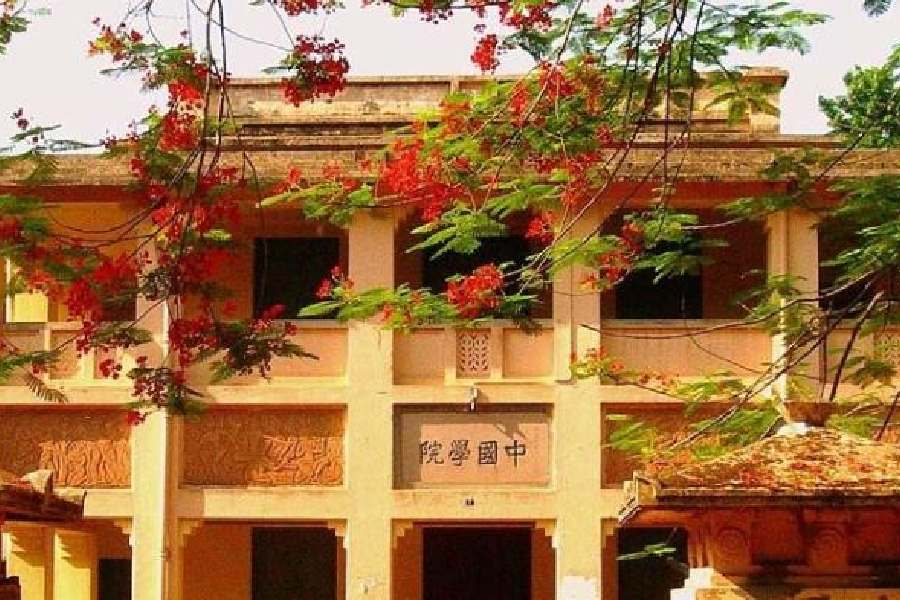Six Chinese scholars who are experts on Rabindranath Tagore and Sino-Indian ties will on Monday take part in a daylong conference at Visva-Bharati's Cheena Bhavana to commemorate the centenary of the Nobel laureate's visit to China in 1924.
Cheena Bhavana is a centre for Sino-Indian studies under the central university in Santiniketan.
A source said this is the first time since the Covid pandemic that so many scholars from China would participate in any event in India.
Since 2020, which witnessed skirmishes between soldiers of both countries, the relationship between the two nations had been disturbed, prompting the Indian government to restrict visa issuance and impose economic sanctions on China.
"After Covid, many scholars from China who are experts on Tagore are visiting Santiniketan and the country to celebrate the centenary of Rabindranath's visit to China. This move will certainly be significant in improving Sino-Indian relations during this period," said Avijit Banerjee, the head of Cheena Bhavana.
Cheena Bhavana and the Chinese Consulate General in Calcutta are jointly hosting the daylong international conference commemorating the centenary of Tagore's China visit.
Among the six scholars, Dong Youchen, a Tagore expert and the executive director of the China Society of World Ethnology and the director of the China Beijing Translators Association, will present a paper and speak on "Rabindranath Tagore's Ideas on Rural Education and its Worldwide Influence".
Other scholars presenting papers on Tagore and India-China relations include Li Jinyun, the director of the Centre for Indian Studies in the School of Foreign Languages at Fuzhou University, and Tan Yongmei, a lecturer in the School of Literature and Journalism at Hunan First Normal University.
"We are happy that these six Chinese scholars are participating in the event related to Rabindranath Tagore, who founded the Cheena Bhavana to promote friendship between India and China," Banerjee added.
Tagore visited China twice, in 1924 and 1928. During his first visit, the first Asian Nobel laureate spent 49 days in the country, meeting several Chinese scholars, such as the Minister of Justice of the Republic of China and intellectual Liang Qichao (1873–1929) and the Chinese poet and writer Xu Zhimo (1897–1931).
After visiting China twice, Tagore formally opened Cheena Bhavana as a research department on April 14, 1937, to strengthen the age-old cultural ties between the two neighbours. Tan Yunshan was the founding director of Cheena Bhavana.
Before the border dispute became a factor in India-China relations, educational exchange programs between Visva-Bharati and three Chinese universities were a regular phenomenon. However, as bilateral ties soured, the number of such events also went down.
"After the pandemic, such programmes completely stopped, and no groups of scholars or students visited Santiniketan in the past four years. Students of Chinese language and literature have suffered due to the closure of entry for Chinese delegations," said a teacher at Cheena Bhavana.
"Now that our country has allowed six Chinese scholars to attend the programme at Visva-Bharati, we see a ray of hope that a fresh round of friendship will begin from this event," the faculty member added.
The Chinese Consulate General in Calcutta, Xu Wei, will also be present at the occasion, along with several senior teachers and officials of Visva-Bharati.
"The Chinese delegation landed in Calcutta on Sunday," said a senior varsity official.
In April this year, Visva-Bharati organised another conference with help from the Chinese Consulate General's office in Calcutta, where the visit of Chinese scholars was discussed.
"It was not easy to get clearance for the event with Chinese scholars. Eventually, the ministry of external affairs gave us its nod," said a varsity source.











